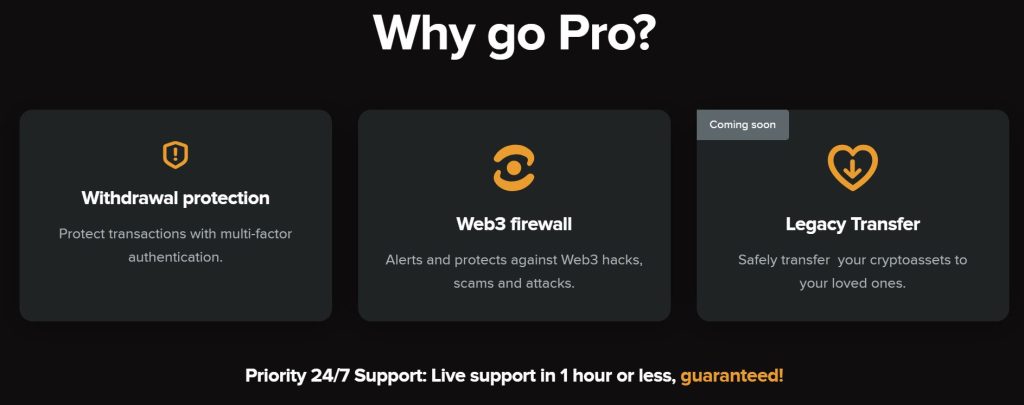- Summary:
- Zengo Wallet Pro comes with new security enhancements, in addition to a legacy feature that secures assets in case the holder passes on.
Zengo, a cryptocurrency mobile wallet, has released a new premium plan dubbed Zengo Pro, which includes a number of new features. For users who have a lot of crypto assets or who are very concerned about security in general, the new service comes with an optional subscription that provides additional security safeguards for $20 per month.
An array of interesting features on Zengo Pro
Zengo Pro is a high-end self-custodial solution with advanced safety features, including crypto inheritance and multi-layered protection against theft. If you ever lose your phone or it breaks down, you can get your Zengo wallet back up and running on a new device by using a recovery file stored in a cloud service like Dropbox.
When users sign up for their Zengo wallet, the company takes a 3D scan of their face to use as a form of identification. It is not FaceID, although it does employ the biometric authentication software. Users of Zengo Pro can employ this feature to add an extra layer of protection when doing outbound transactions. Once you activate this feature, any outgoing transaction initiated by a Zengo Pro user will be subject to a face scan, making it improbable for third parties to steal from you, even if they know your passcode.

In the coming weeks, Zengo plans to roll out a legacy transfer tool that will allow users to effortlessly pass on their assets to a designated next of kin in the event of their passing. This will ensure that a user’s assets are safe and saves from the hassle of dealing with succession lawyers. The company is working on a software solution that can be deployed with minimal effort.
A user’s legacy contact can be a close friend or family member, and they are the ones supposed to install the wallet first. The primary user and the beneficiary will then have a common key that they can keep safe in a cloud storage account. Crypto assets are automatically transferred to the legacy contact after a specified period of inactivity.


